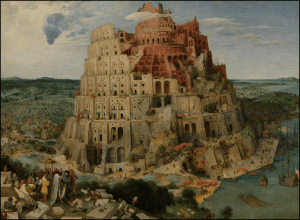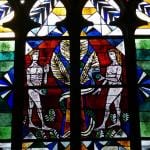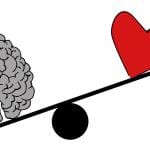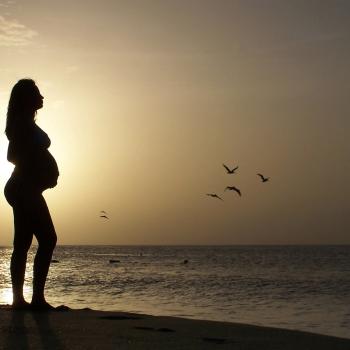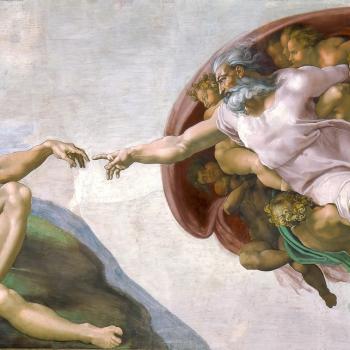Despite millennia of progress in human civilization, we as a species continue to be plagued with certain tendencies that may well lead to our destruction: Why do we continue to make war? Why does so much of the planet’s population continue to struggle, suffer, and live with little hope or opportunity? Why are some inclined to destroy the very ecosystem upon which we all depend? Why do a privileged few who hold more wealth than could be used in dozens of lifetimes nevertheless continue to seek more?
Despite the complexity of life and how multifaceted are our problems, I still keep hoping to find some simple, discrete point in the history of conscious evolution where things “went wrong” — and how we might then do a consciousness “reset”. Now, I am pretty sure this is it:
As a species, in a critical way, we misunderstand the purpose of existence – why we were created or evolved in the first place (by whatever powers were responsible for it). We have misinterpreted our divine/cosmic “mandate”.
What follows could be stated in completely secular (non-religious) language for another audience, but in this context, for convenience, I’ll use conventional spiritual terminology.
Major religious texts hold that we (humanity) were created “in the image of God” — sort of like a discount store version of deity. Yet after doing a little exegesis on the words translated to this phrase, I believe it would be more accurately stated as “created as the image of God”.
In other words, the entity or phenomenon we commonly refer to as “God” is essentially inconceivable, unknowable, unnameable, indescribable, and cannot be accessed or comprehended directly. Any attempts to do so will only reduce him/her/it to the earthly limits of what we can see, experience, and therefore describe in words. [Ramana Maharshi: “The only language capable of expressing the whole truth is silence.”]
Therefore, in order for humanity to engage with divinity, an agent or “icon” or an image of God is needed. That is supposed to be us.
Where Humanity Has Taken a Wrong Turn
Considering all the chaos, strife, suffering, and destruction in the world today, if our mandate is to be God’s representative image, you might agree that we are doing a less than spectacular job of it. Why should this be?
I believe it is because a great many of us have unconsciously misunderstood the original purpose of our creation, and our mandate. Instead of realizing that we are here to be a representative image of God, some of us have fallen to believing that we are each challenged to be the God.
What is the difference? In the first interpretation, all of us are equally valuable and capable. Each of us are intended to be a unique, complementary window on divinity. (This is charmingly analogous to a tenet in Einstein’s theory of General Relativity which holds that space is curved in such a way that any point in the universe might be considered its center. Similarly, any one of us might equally stand in for God.)
The second interpretation derives from the philosophies that emerged out of historical experience in the world. Human history involves much struggle and strife, along with ongoing insecurity about the ability to survive and thrive in the world. With the rise of abstract consciousness, it was possible to imagine a contrasting idealized realm of perfection somewhere “out there”; one presided over by idealized all-knowing, all-powerful entities — and eventually a monotheistic “God”.
The result was a natural separation of the cosmos into two realms — an inferior mortal realm characterized by suffering and limitation versus a divine realm of perfection and wholeness — and alongside this, two states of being: mortal and divine. Historically, theologies commonly fall toward denigrating the former while urging identification with the latter.
Yet what does this mean for modern humankind — especially for atheists who do not consciously embrace any particular theology? If there is an essential “God pressure” inherent in our existence, how might it manifest in such people?
Although it may be completely unconscious, the unconscious rationale might run something like the following:
⁃ There is only One most worthy. It must be me
⁃ Supreme value is reflected by what I own and control
⁃ … therefore, as much as possible, I must own and control everything
⁃ The One demonstrates superiority by out-competing or thwarting all others
⁃ … and by the power to control and exploit others, or to inflict suffering
⁃ One can create big things, but cannot create life or nature. Yet superiority over the same can be demonstrated by dominating or destroying it
The Practical Manifestation
On the dark side, the drive to effectively be God has been reflected throughout history, often embodied as warlords, kings, popes, dictators, politicians, CEOs, and others holding vast wealth or vast power over the masses. Not to imply that every last one has acted with evil intent, but simply consider the motivation that drives one to seek disproportionate levels of wealth and power.
In contrast, those who are more aligned with the mission to be a representative face of the divine, these are the ones motivated by a desire to realize the potential in all aspects of the living universe and its inhabitants. Such people are the saints, students, teachers, researchers, and explorers. They are the parents, caretakers, helpers, and stewards of creation – the ones who realize that creation is not about “One”, but about “All”.
——————————
At this point in history, the capability of our species has reached a level where our powers to create and destroy have attained almost god-like proportions. Our decisions and actions can now affect the entire planet and its populations — for good or ill.
Ideally, as consciousness continues to unfold, still more of our hidden motivations will come into full awareness, whereupon we can collectively make the choices that will not only ensure that we continue to survive and thrive, but will further open uncountable new windows on the cosmos, and perhaps on divinity itself.
At that point, we may finally understand what “heaven” truly means.

